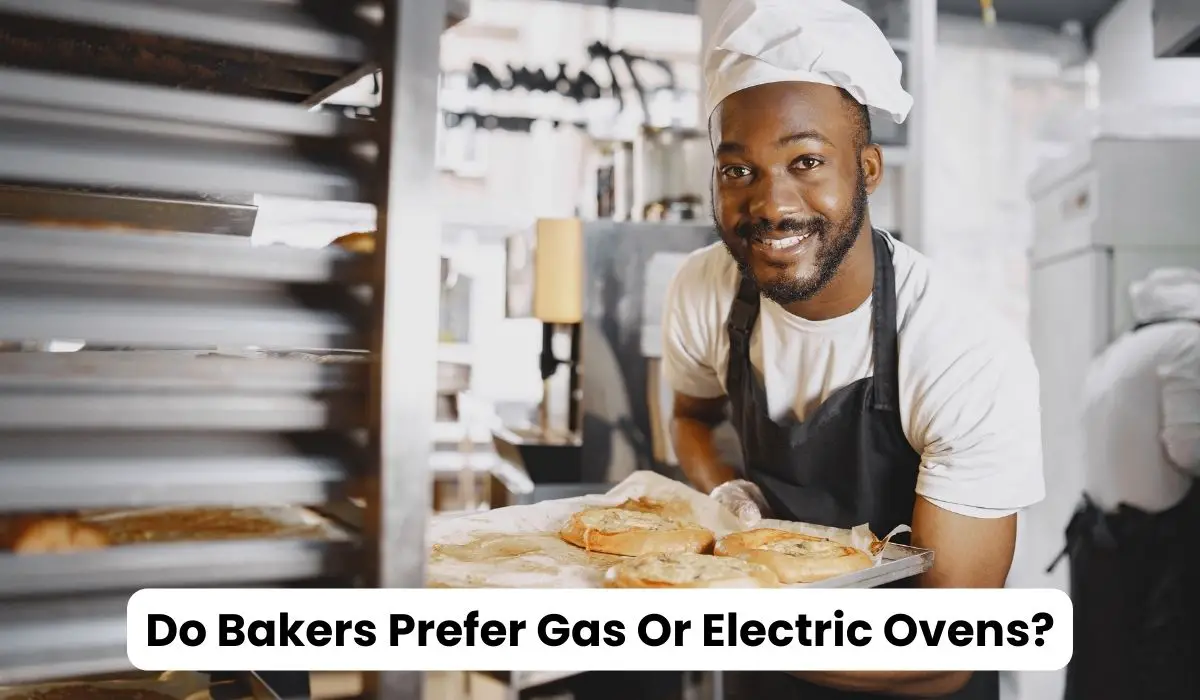In the delightful realm of baking, the age-old debate between gas and electric ovens has been a topic of continuous discussion among seasoned culinary experts and passionate home bakers.
Your kitchen’s beating heart, the oven, plays a pivotal role in the success of your culinary creations. Whether you’re an experienced pastry chef or an at-home baking enthusiast experimenting with new recipes, choosing between gas and electric ovens involves considering several factors.
From precision in temperature control to energy efficiency and the overall baking experience, each oven type boasts unique advantages and considerations. This exploration seeks to answer the intriguing question: Do bakers prefer gas or electric ovens? By unraveling the distinct characteristics and merits of each, this article aims to provide you with insights to make an informed decision that perfectly aligns with your baking aspirations.
Table of Contents
How Does A Gas Oven Work In Baking?
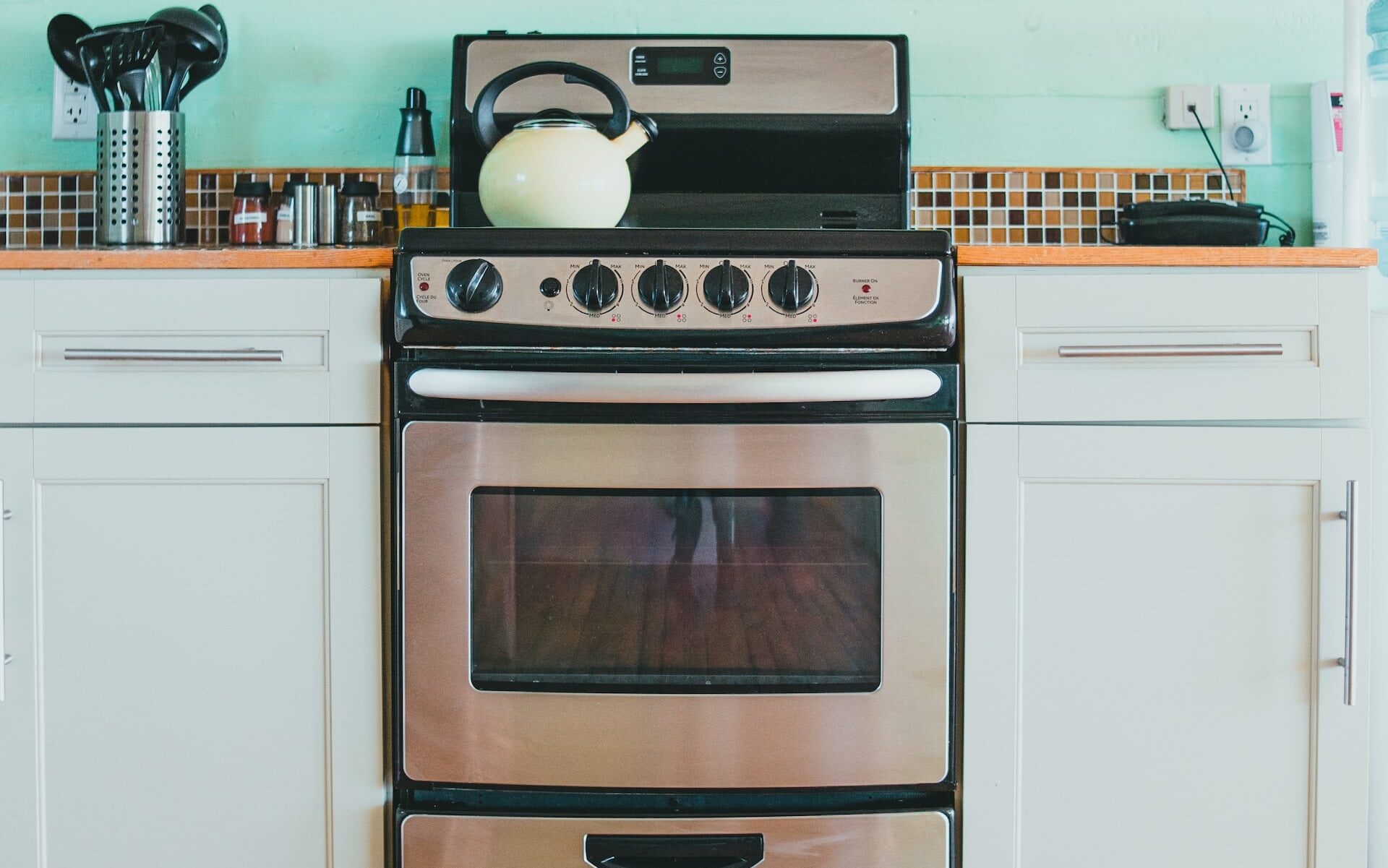
Baking perfection often begins with the subtle science behind your kitchen appliances. A gas oven, a common yet indispensable tool in many households, is crucial in transforming raw ingredients into delectable treats. Understanding how a gas oven works can elevate your baking game and help you master the art of creating mouthwatering delicacies. Let’s delve into the mechanics that make your gas oven an indispensable ally in the kitchen.
In the core of each gas oven, there exists a component known for producing the necessary heat for baking – the burner. Upon activating the oven, a valve under control is triggered, permitting the entry of natural gas or propane into the burner. The ignition of these gases is facilitated by either a pilot light or an electronic system, setting off the commencement of the combustion process.
The burner’s flame, in turn, heats the oven’s air. Unlike electric ovens, which rely on heating elements, gas ovens evenly distribute heat through convection. Convection is when hot air circulates within the oven, enveloping your food from all sides. This uniform heat distribution ensures that your cookies, cakes, or casseroles bake consistently, preventing uneven cooking and ensuring a perfect result every time.
One of the advantages of gas ovens is their quick preheating time. Gas flames heat the oven faster than electric elements, allowing you to start your baking promptly. This efficiency is particularly beneficial for those moments when the aroma of fresh cookies beckons and impatience is hard to resist.
Controlling the temperature in a gas oven is a straightforward affair. The temperature dial on your oven regulates the gas flow to the burner. Adjusting the dial increases or decreases the heat, giving you precise control over the baking environment. It’s advisable to invest in an oven thermometer to confirm that the temperature displayed on the dial aligns with the actual temperature inside the oven, ensuring optimal baking conditions.
For recipes that call for a burst of heat at the beginning (like artisan bread) or a gentle, consistent warmth throughout (like custards), the gas oven’s broil and bake settings come into play. The broil setting activates the upper burner, which gives casseroles a golden-brown finish. On the other hand, the bake setting relies on the lower burner, maintaining a steady temperature for even cooking.
How Does An Electric Oven Work In Baking?
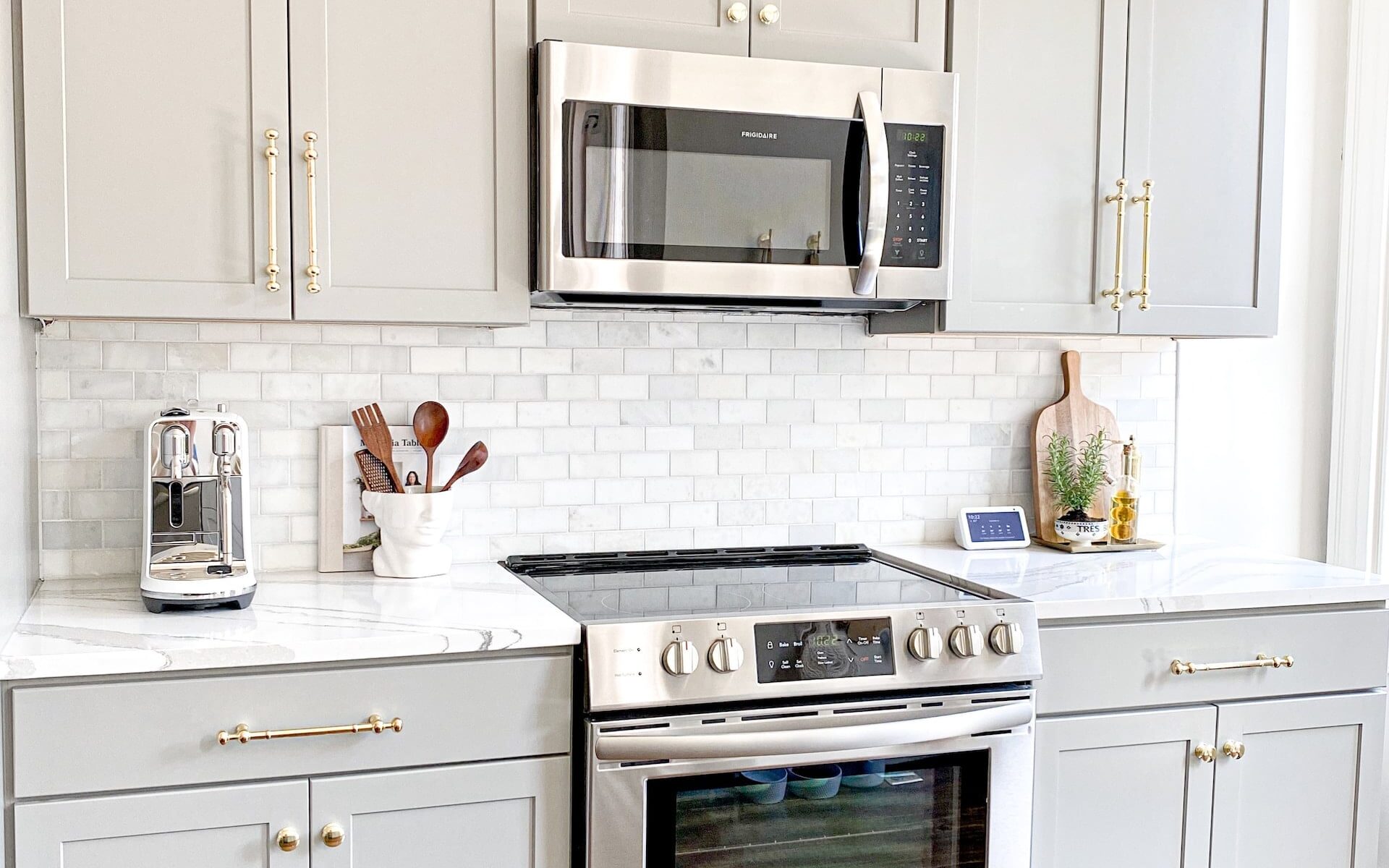
Baking with an electric oven is like orchestrating a symphony of heat, transforming raw ingredients into golden perfection. Let’s demystify the inner workings of these culinary marvels, providing you with a behind-the-scenes look at how your electric oven brings magic to your kitchen.
A simple yet ingenious heating system is at the heart of every electric oven. Coils, usually made of nickel and chromium alloy, form the basis of this heat-producing mechanism. When you turn on your oven, electricity courses through these coils, encountering resistance. This resistance generates intense heat, essential for coaxing rise and flavor from your favorite recipes.
Temperature control is the maestro of this culinary performance. Like a vigilant conductor, a thermostat ensures the oven maintains the desired temperature. When you set your oven to 350°F (175°C), the thermostat diligently monitors the temperature, cycling the heating elements on and off to sustain that precise environment.
Inside the oven, this dance of heat distribution takes center stage. Unlike stovetop cooking, where a pot directly interacts with the heat source, an oven’s enclosed space allows even cooking from all sides. This is especially critical in baking, where consistent heat fosters uniform rising and browning.
Have you ever wondered about that whirring sound you hear during baking? Meet the convection fan, a backstage crew member who ensures hot air circulates evenly. This quickens the baking process and guarantees every inch of your creation receives the same tender, loving heat.
Now, let’s focus on the magic inside the batter. Leavening agents like baking powder or yeast rely on the oven’s heat to work their transformative wonders. The heat causes these agents to release carbon dioxide, creating a delightful rise in cakes and bread.
Ever noticed the glass window in your oven door? It’s not just for show. This feature lets you peek at your culinary masterpiece without disrupting the internal temperature. Opening the oven door prematurely can lead to temperature fluctuations, potentially deflating that perfectly risen soufflé.
So, the next time you preheat your oven, envision the intricate choreography of heat and technology working seamlessly to turn your raw ingredients into a symphony of flavors and textures. Your electric oven isn’t just an appliance; it’s a silent partner in your culinary adventures, transforming your kitchen into a stage for delicious creations.
Benefits Of Gas Ovens For Baking:
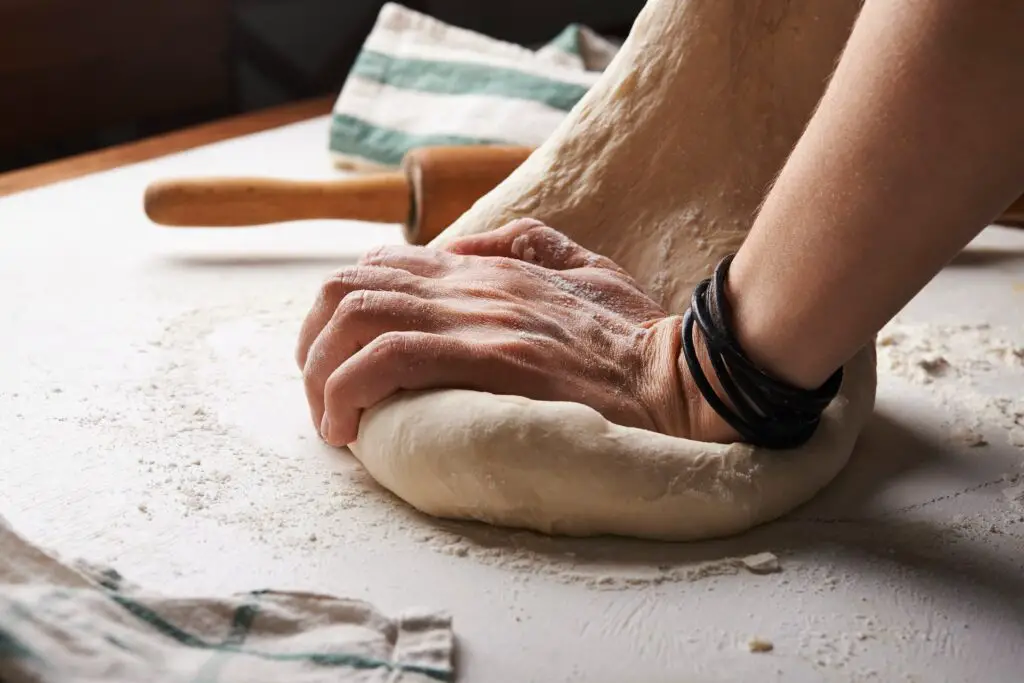
In baking, the choice of oven plays a pivotal role in the final act—your delectable creations. Often overshadowed by their electric counterparts, gas ovens possess a range of benefits that elevate the baking experience to new heights.
1. Swift Preheating
Picture this—you’re eager to bake, and time is of the essence. With their rapid heating capabilities, gas ovens cut down preheating times significantly compared to electric models. This means less waiting and more time for your culinary ingenuity.
2. Precise Temperature Control
Achieving the perfect bake requires precision. Gas ovens respond promptly to temperature adjustments, offering you greater control over cooking. This control is especially crucial for delicate pastries and dishes that demand a nuanced approach to heat.
3. Even Heat Distribution
Consistency is the hallmark of a great oven. Gas ovens distribute heat evenly throughout the cooking chamber, ensuring every corner receives the same warmth. This uniformity is a game-changer in baking, where even heating fosters uniform rising and browning.
4. Moisture Retention
Baking is as much about moisture as it is about heat. Gas ovens retain moisture exceptionally well, preventing your baked goods from drying. This feature is advantageous for creating tender cakes and soft, perfectly risen bread.
5. Versatility in Cooking
Gas ovens offer versatility beyond baking. The open flame in a gas oven facilitates better broiling, roasting, and charring. This adaptability makes a gas oven a multifunctional kitchen companion, easily catering to various culinary endeavors.
6. Energy Efficiency
A noteworthy benefit is the energy efficiency of gas ovens. They generally consume less energy compared to electric ovens, translating to cost savings in the long run. This eco-friendly aspect adds an extra layer of appeal to those mindful of their environmental footprint.
7. Reliability During Power Outages
In a world reliant on electricity, gas ovens stand out during power outages. Their independence from electrical grids ensures that your baking endeavors remain uninterrupted, providing security in unpredictable situations.
Benefits Of Electric Ovens For Baking:
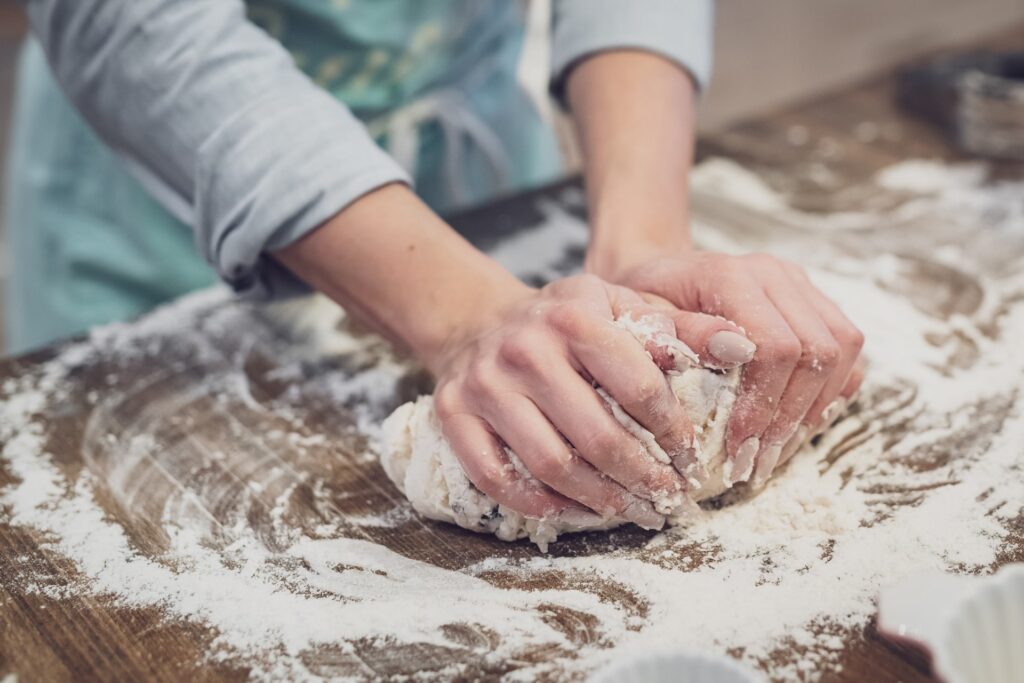
In the ever-evolving world of baking, the choice of oven can be a transformative factor in the outcome of your culinary exploits. Electric ovens, often unsung heroes in the kitchen, boast a spectrum of advantages that can redefine your baking experience.
1. Precise Temperature Regulation
The cornerstone of successful baking lies in temperature control. Electric ovens excel in maintaining consistent temperatures, offering a stable environment ideal for delicate pastries and precise recipes. This precision ensures your creations rise uniformly and achieve the desired texture.
2. Even Heat Distribution
Baking is an art of balance, and even heat distribution is paramount. Electric ovens, equipped with carefully arranged heating elements, ensure that every nook and cranny of your oven receives the same warmth. This uniformity translates to evenly baked goods, from golden brown crusts to perfectly risen cakes.
3. Ease of Use
Simplicity can be a game-changer in the kitchen. Electric ovens, with their straightforward controls and user-friendly interfaces, cater to novice bakers and seasoned chefs alike. Set the temperature, set the timer, and let the oven do the rest, allowing you to focus on the joy of creating.
4. Versatility in Cooking Modes
Electric ovens often come with various cooking modes, expanding their utility beyond baking. Convection settings, grill functions, and broiling capabilities add a layer of versatility to these ovens, making them suitable for various culinary endeavors.
5. Efficient Preheating
Time is of the essence in the kitchen, and electric ovens excel in quick preheating. The absence of an open flame allows for a rapid increase in temperature, reducing the wait time before you can slide your carefully prepared dishes into the oven.
6. Energy Efficiency
Electric ovens stand out for their efficiency in an era where energy consciousness is paramount. They convert a higher percentage of their energy into heat, translating to cost savings and reduced environmental impact over the long run.
7. Consistent Results
Baking is a science; electric ovens provide the controlled environment necessary for consistent results. Once you find the sweet spot for your recipes, you can trust that your electric oven will faithfully reproduce those delectable outcomes every time.
Gas Oven vs Electric Oven: Which Is Good For Baking?
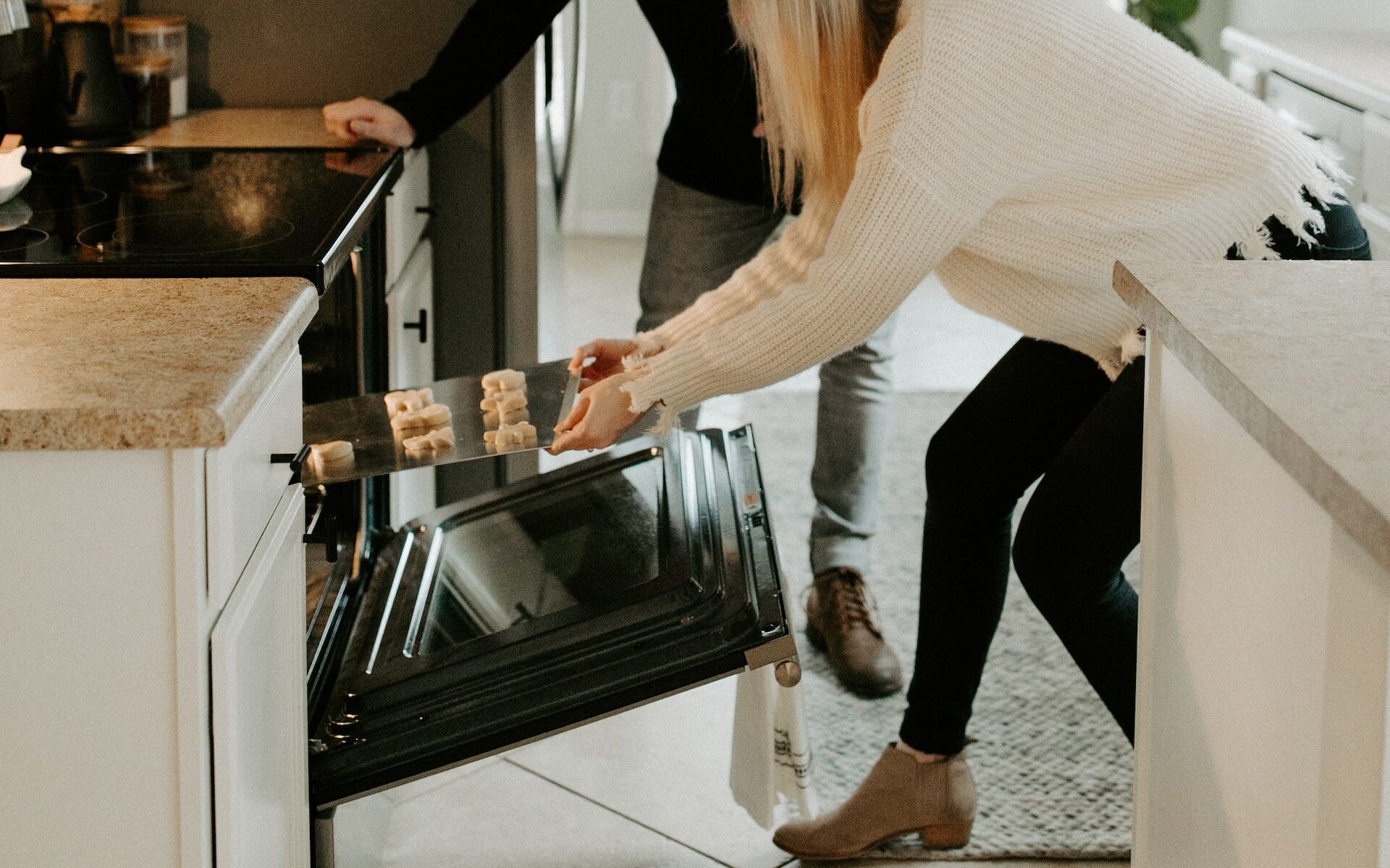
Deciding between a gas oven and an electric oven for your baking endeavors ultimately boils down to personal preferences and the specific qualities you prioritize in your baked goods. Gas ovens are revered for their quick preheating capabilities and even heat distribution, providing a more traditional cooking experience. Most heat gas ovens produce benefits for specific recipes, like bread or roasts, enhancing the final texture and flavor.
On the other hand, electric ovens boast precise temperature control and consistent baking results. They are generally easier to clean and maintain, making them a convenient choice for those who prefer a fuss-free baking process. If you prioritize speed and the ability to achieve a crisp exterior, a gas oven might be your ideal companion. However, an electric oven could be the perfect fit if precision and simplicity align more with your baking style. Ultimately, the “best” oven for baking depends on your unique needs and the types of culinary creations you aim to achieve.
Do Bakers Prefer Gas Or Electric Ovens?
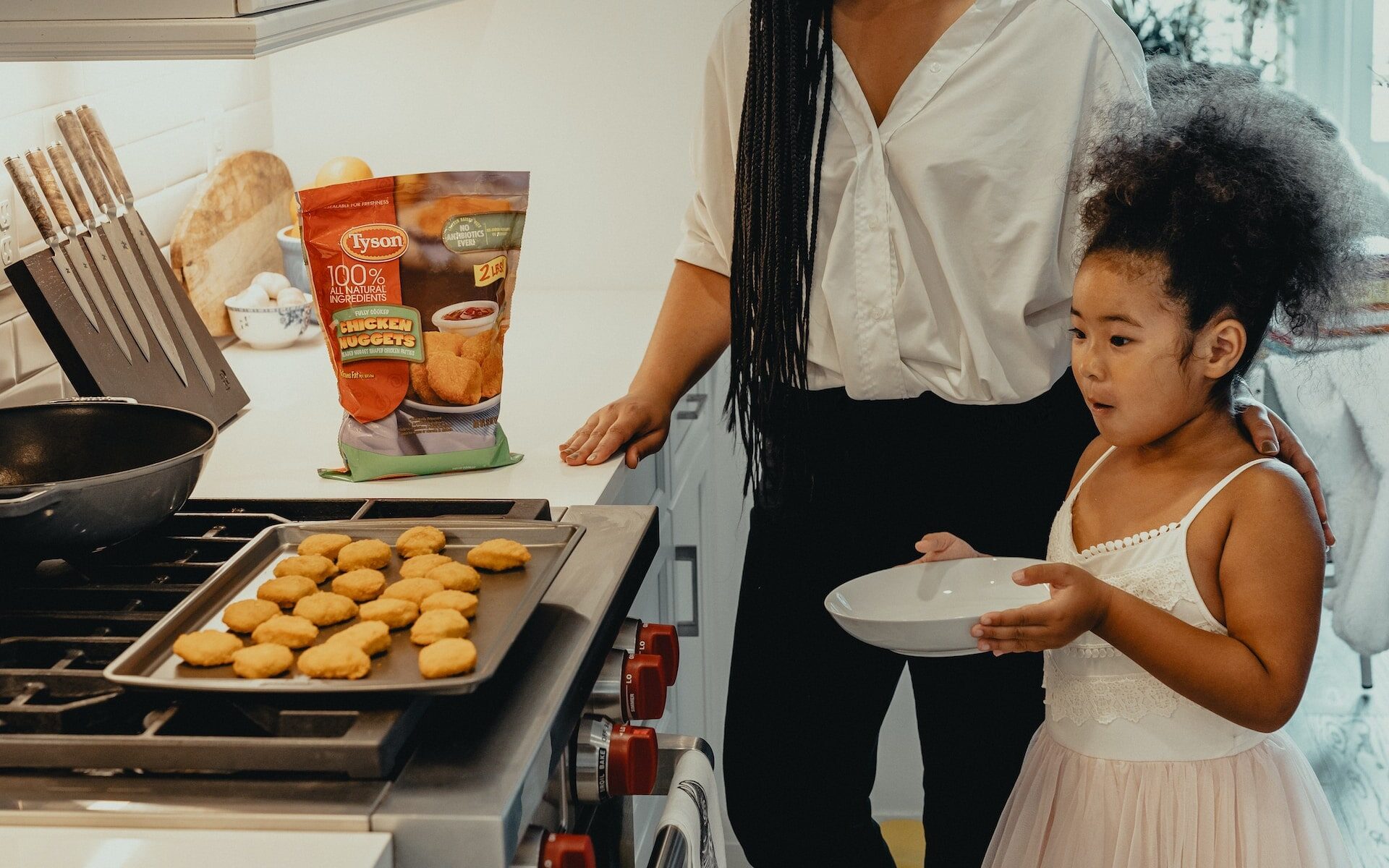
Bakers are at a crossroads when considering the choice between gas and electric ovens, each offering unique advantages that cater to different preferences and baking requirements.
Gas ovens, renowned for their rapid heating capabilities, are favored by many bakers for their quick preheating times. The open flame in a gas oven distributes heat more evenly, allowing for precise temperature control. This becomes crucial for delicate recipes where specific temperatures can make or break the final product. Moreover, gas ovens are celebrated for providing a moist baking environment, ideal for achieving the perfect crust on artisan bread or a tender, succulent interior for certain pastries.
On the other hand, electric ovens present their own set of merits. One of the primary benefits is the consistency of heat they offer. Electric ovens distribute heat evenly throughout the baking chamber, ensuring your creations are uniformly cooked. This attribute makes electric ovens particularly attractive for baking cookies or cakes simultaneously, where consistent results across the entire collection are paramount.
Additionally, electric ovens often come equipped with advanced features such as convection fans, further enhancing the even distribution of heat. This is especially beneficial for bakers engaged in large-scale production or those experimenting with recipes that demand precision in temperature control.
The choice between gas and electric ovens ultimately boils down to personal preference and the specific needs of the baker. With their swift heating and moisture retention, gas ovens may be the top choice for artisan bakers or those specializing in specific traditional recipes. Meanwhile, electric ovens, prized for their consistency and additional features, might appeal more to commercial bakers or those who enjoy experimenting with various baked goods.
In short, the ideal oven for a baker depends on the type of baking they specialize in and their individual preferences. Whether you opt for the quick and precise nature of a gas oven or the consistent and feature-rich appeal of an electric oven, both choices offer a platform for culinary creativity that turns baking into a delightful experience.
Factors That You Should Consider When Choosing An Oven For Baking:
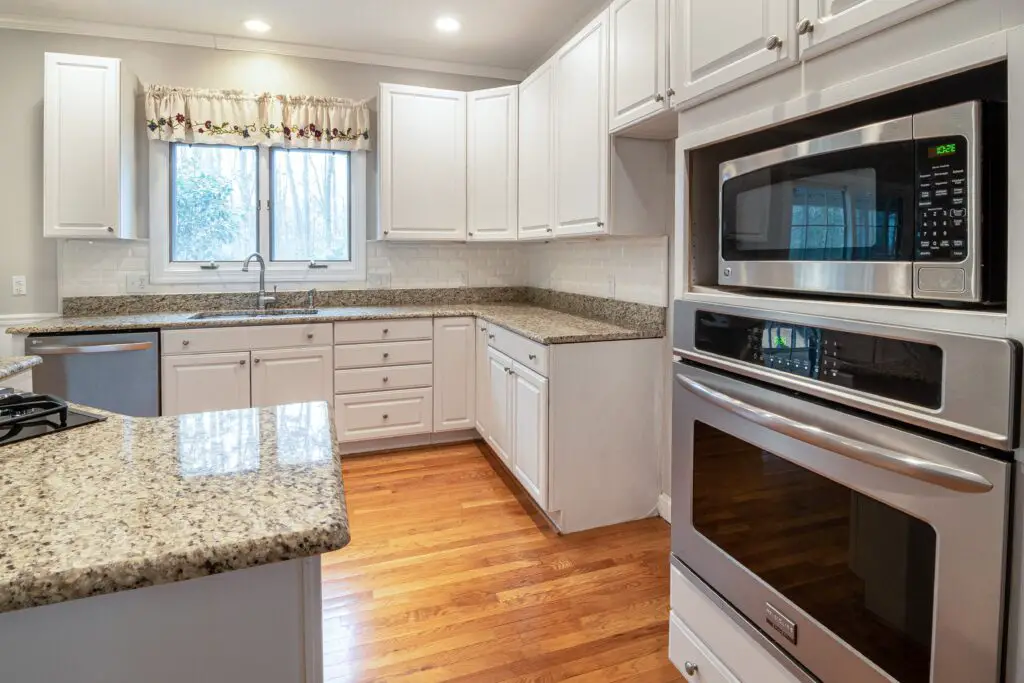
Selecting the perfect oven for baking involves more than just choosing a shiny appliance. The proper range can significantly affect the outcome of your culinary creations. Here are vital factors to consider when on the quest for the ideal baking partner:
1. Type of Oven
When embarking on your baking journey, the type of oven plays a crucial role. Conventional, convection, and toaster ovens each have their unique features. Conventional ovens are reliable for basic baking, while convection ovens, with their fan-forced heat circulation, ensure even baking. On the other hand, toaster ovens are compact and energy-efficient, suitable for small batches.
2. Size Matters
Consider the size of the oven for your baking needs. A spacious oven allows for multiple trays and larger batches, while compact ovens are ideal for smaller kitchens. Ensure the oven’s interior accommodates your favorite baking sheets and pans comfortably.
3. Temperature Control
Precision in temperature is paramount for baking success. Opt for an oven with accurate temperature control settings. Some models come with advanced features like dual ovens or convection conversion, providing more flexibility and precision in temperature management.
4. Heating Technology
The heating technology of an oven significantly impacts baking results. Ovens with top and bottom heating elements ensure uniform heat distribution. Look for advanced features such as rapid preheating and even heating technology to guarantee consistent results across your baked goods.
5. Ease of Cleaning
Baking can get messy, so choose an oven that’s easy to clean. Self-cleaning options, removable racks, and a smooth interior make maintenance a breeze. This factor contributes not only to the longevity of your oven but also to the overall convenience of your baking experience.
6. Energy Efficiency
Keep an eye on the energy efficiency of the oven. Energy-efficient models save you money and contribute to a greener environment. Look for ovens with an Energy Star certification to ensure your baking adventures are cost-effective and eco-friendly.
7. Budget Considerations
Determine your budget before diving into the sea of oven options. While it’s tempting to go for the latest and greatest features, consider what aspects are essential for your baking needs. Excellent ovens are available in various price ranges, ensuring you find the perfect balance between quality and affordability.
8. Brand Reputation and Reviews
Research the reputation of oven brands and read customer reviews. This provides insights into the real-world performance of the oven you’re considering. Brands with a positive reputation for reliability and durability are likelier to deliver a baking experience that meets your expectations.
In short, choosing the right oven for baking involves a thoughtful consideration of various factors. From the type and size of the oven to its temperature control and cleaning features, each aspect contributes to the overall baking experience. By carefully evaluating these factors, you’ll be on your way to selecting an oven that becomes an indispensable companion on your baking journey.
Conclusion:
At the end of this article, it’s clear that the debate between gas and electric ovens for bakers is not a one-size-fits-all situation. Both options have unique advantages and quirks. The choice ultimately depends on individual preferences and specific baking needs. Whether you lean towards the precision of an electric oven or the versatility of a gas oven, the key takeaway is that each has its charm in the world of baking.
So, as you embark on your culinary adventures, consider the insights shared here and let your baking journey be guided by the warmth and efficiency that aligns with your kitchen aspirations.
